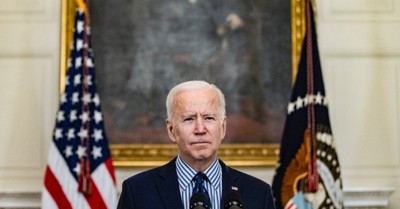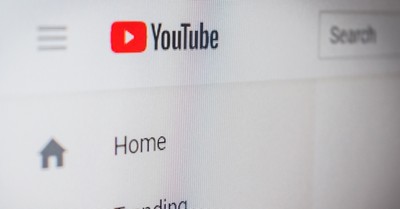
On Monday, national news outlets issued retractions to their previous reports that claimed former President Donald Trump pressed a lead Georgia election investigator in a phone call to “find the fraud” in the 2020 Presidential Election.

On Monday, national news outlets issued retractions to their previous reports that claimed former President Donald Trump pressed a lead Georgia election investigator in a phone call to “find the fraud” in the 2020 Presidential Election.
According to a new survey, 52 percent of Americans are concerned about the fact the President Biden, already 50 days into his term, has yet to hold a formal press conference.
Today, “news” is often opinion on the news rather than the reporting of it. Many news programs are more entertainment than information. Analytics drive ads which drive profits, and digital media are more sophisticated than ever in tracking them. Many companies are pushing news 24/7/365. We can like this, hate it, or ignore it, but it’s the way it is and the way it will be for the foreseeable future. What does any of this have to do with my mission as a cultural apologist to equip evangelical Christians to respond biblically and redemptively to the vital issues we face? How does today’s article relate in practical ways to you? Let’s consider three biblical imperatives for our day.
Two Democratic members of a House communications subcommittee sent a letter to a dozen television carrier executives this week, asking them why they carry Fox News, Newsmax and OANN and warning them that the three news channels are "disseminating misinformation to millions" of Americans.
On Sunday, a Stanford professor lamented the level of “disinformation” within right-wing media and suggested large companies like YouTube and Facebook should kick them off their platforms.
Broadcast, digital, and social media have made it easier than ever for us to curate our news feeds, consuming only those sources whose opinions agree with ours. As the partisan divides in our country continue to widen, these echo chambers are only reinforcing our positions and our rejection of those who disagree with us.
In an age of information, “extremely online people,” meaning those who rely primarily on social media for their political news, are among the least informed and most easily-deceived groups in America.
Was a Bible burned in Portland? Yes, but that's only part of the story.
An MSNBC journalist recently quit her job asserting that the network is becoming a cancer and driving further division in the nation.
Given the pervasiveness of media and it’s subtle—yet consistent—influence on our thinking, it’s more important than ever to have a plan in place for how we’ll consume it. To that end, what are some practical steps we can take to guard against the waves of culture slowly ebbing away at our faithfulness to God’s truth without going so far in the opposite direction that we act as though those waves don’t exist?






